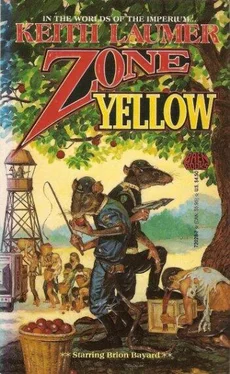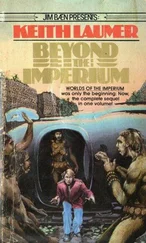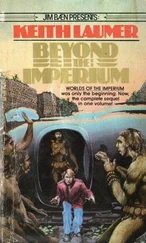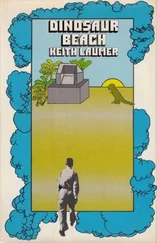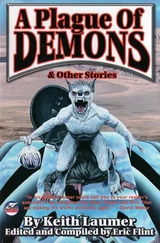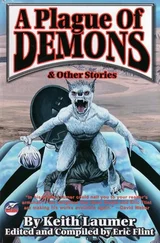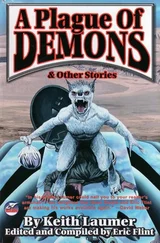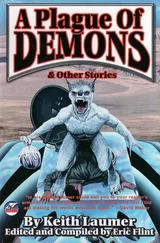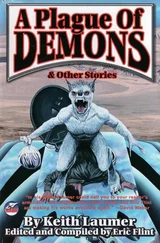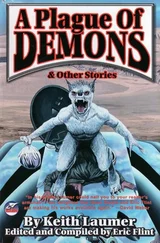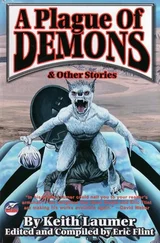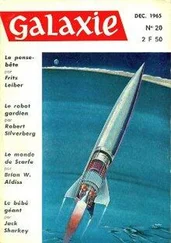“We’ve actually been here over a year,” he said quietly, as if hoping not to overhear it. “The sun hasn’t moved; it’s the same day, but the chronometer in the shuttle is still running, and the calendar, too. One year, last week. This is the third time you’ve come to. You’ll faint again in a few minutes.”
“It hasn’t been more than a couple of hours, subjective,” I grumped. “The instruments must be wrong. We can’t afford to be that long!”
“I know, sir,” the lieutenant agreed mournfully.
This time I got an elbow under me. I waited while the little bright lights gradually faded, then got my feet onto the floor. “Where’d Swft go?” I asked. Helm just looked confused, like I felt.
“I need my boots,” I said. Helm helped get them on my feet, which I then planted on the floor. I was sitting on the edge of the command chair now, and I leaned forward until my weight was taken by my feet, and stood up. I didn’t try to push with my legs, just imagined a skyhook lifting my butt, and then I was standing up. I felt a little dizzy for a moment, but that was just the sudden change in the altitude of my brain. The “oh boy, I’m going to faint” feeling passed and I tried a step; it worked OK. Helm was staring me in the face. “For a second, sir, your face looked greenish. It’s all right now. But you’d better sit down and not overdo it this time.”
I agreed wholeheartedly and sat on the edge of the chair.
“Nourishment,” I said. “Rare roast beef and plenty of it, mashed potatoes and gravy, a slab of berry pie. A tall, cold, Tre Kronor beer.”
“Sir, we have the issue rations,” Helm reminded me.
“Recon Eggs Retief,” I specified. “If we’ve been here a year,” I said, doubting it, “why haven’t we starved?”
“I don’t know, sir,” Helm admitted. “In fact, I don’t really know much more than you do, sir, and you’ve been in a coma most of the time.” He looked apologetic―apparently because he had suggested that maybe I didn’t know everything.
“Maybe,” he offered timidly, “we don’t need nourishment in a null-time vacuole, or whatever you called it. Maybe our metabolism stops.”
I shook my head. “If that were the case, we wouldn’t be moving, and breathing, and discussing the matter. Let’s just settle for not understanding it, like most people don’t understand the Net, or like nobody understood the sun and moon until very recently. As a species, we got by in ignorance for the greater part of a million years. We used fire, even though we didn’t know about ‘oxidation.’ ” I realized I was trying to convince myself, and not succeeding. I thought about telling Helm to “carry on” and get out of here. It was just a passing thought, not something I really considered. Then I had another thought:
“Where’s Smovia?”
“Sleeping, sir,” Helm reported. “He’s been sleeping a lot. I think he took something. He offered me one, but…”
“But you’re not ready to become a hophead just yet,” I supplied. “Good man, Andy.” Then I started to say something encouraging, but that felt too phoney. So instead I pointed out that we were stranded in a rather inhospitable section of the Cosmic All.
“Right, sir,” Andy replied briskly. Being content to not understand was a more comfortable intellectual position than eternally wondering. “But we still have the shuttle, sir,” the boy reminded me brightly, as if that solved all our problems. “Intact,” he added.
“I hate to tell you, Andy,” I said hating to tell him, “but there are circuits in this machine that are chronodegradable. Security measure, you know, to prevent accidental use of a shuttle that might be abandoned in a line without A-technology. Also, environmental considerations made it seem like a good idea when we were designing it.”
“But, Colonel, I thought…” Hehn realized there was nothing to say and trailed off.
I nodded. “I’ll get off a VR to the Director of Technology as soon as possible,” I remarked sarcastically.
He jumped on that fast: “Good idea, sir. That’ll…” He faded off. The comforting structure of established procedures didn’t last long.
“Meanwhile,” I said, “we at least have shelter. Minimal luxury, but better than sleeping in the mud.”
“J a, da, for all del,” he agreed, and looked at me anxiously. “We can’t breathe the air out there, sir,” he told me, a fact I’d discovered the hard way. “But there’s enough oxygen in it to sustain us, after the filters concentrate it for us. But that means we’re stuck inside here.”
“So it does, my boy,” I agreed airily. “Was there someplace out there you wanted to go?” I indicated the view through the small window: a glistening, fog-shrouded expanse of mud, dotted with puddles.
“It’s not that, sir,” he explained. “I just thought―well, we need exercise, and maybe, just over the horizon…”
“The planetary crust has just about stabilized, I’d say,” was my next contribution. “The era of intense meteorite bombardment and constant volcanic eruption has apparently passed. The continents are stabilizing, and the water is in the process of accumulating in the sea basins. There won’t be any land life, maybe no life at all. Distilled water and chemicals leached from the higher ground by the water flowing downslope. Probably just a few large lakes, so far; the land is so flat, the runoff doesn’t channel to form a river. Instead of land and sea, there’s just an endless mud flat. No icecaps yet. Not much variety in this world, I’m afraid.”
“And yet this is contemporary with the twentieth century?” Helm queried.
“It’s what the Zero-zero line would be like if a whole series of unlikely events hadn’t occurred,” I told him, “to create precisely the conditions required for the development of life.”
“But, sir, how did primitive life affect things like ice ages and volcanism and all?” was his next anxious question, as if convincing me there was no such place would get us out of it.
“Consider,” I suggested. “After the distilled-water seas were polluted by minerals from the land, plant life appeared. The first plant life, the algae, broke down the abundant carbon dioxide to release O-two into the atmosphere: the second great pollution, of the air this time, that made animal life possible. Animals like coral, for example, made reefs that affect oceanic currents. Then the accumulative plant debris gave rise to the coal beds, and of course the animals’ exhalation of carbon dioxide, along with that produced by decaying plants, provided the greenhouse effect, which had a profound effect on climate, rainfall, erosion, and so on.” I realized I was sounding like a high school science teacher holding forth, so I shut up. Helm didn’t pursue the point, which was OK with me, because I was about out of glib explanations, anyway.
I had shown Helm how to operate the scanner, which I asked him to do. I went to the main panel to twiddle things there.
“The blue meter,” he called. “It jumped!” I reassured him that was to be expected: it measured the entropic displacement between the shuttle and the external environment. Other readings were equally routine, until I came to the big one: temporal gradient. It read too high.
“There’s over a thousand-year discontinuity,” I stated.
“How?” he demanded. “If you mean―”
“I do,” I confirmed. “We’re marooned on a level where Charlemagne died just recently, back on the Zero-zero line.”
“A rescue mission will never find us here,” Helm said. He was peering out the open hatch at the shifting mists. “But neither will they,” he added, more cheerfully.
Читать дальше
